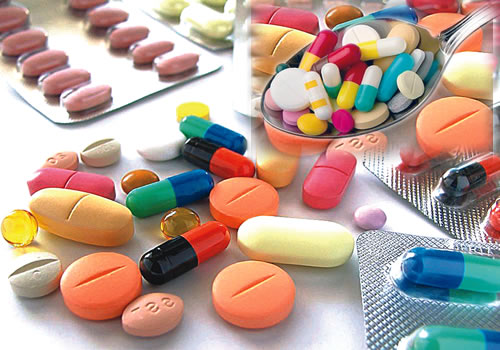
T HE current economic recession in Nigeria is taking a frightening toll on the polity. Almost on a daily basis, Nigerians are waking up to the reality of the continuously biting pangs of the economy. The cost of living is heading for the rooftops, with daily essentials going beyond of the reach of the people. Apart from rising food prices and scarcity of cash to purchase goods, the foreign exchange crisis which has made foreign currencies scarce and their exchange rates to the naira unbearable, has greatly affected essential consumables.
On the list of these consumables, drugs rank high. Nigeria, like many other developing countries, has its own share of avoidable sicknesses and diseases besieging a high number of its citizens. The most vulnerable members of this group are the elderly who are naturally afflicted by ailments that are most times age-related. In some cases, many others fall prey to these ailments due to the daily afflictions of existence. The foreign exchange crisis has ensured that drugs which were hitherto barely affordable have gone out of the reach of the people.
In a recent news report, the Saturday Tribune of August 26, 2016 brought the poignant nature of the crisis into focus. Common but deadly ailments like hypertension and diabetes which afflict very many Nigerians and require daily intake of drugs, many of which are not manufactured in Nigeria, have gone out of the reach of their patients. According to the report, millions of sick Nigerians, especially old persons and pensioners who battle chronic illnesses, are victims of this high cost of medications. Due to the nation’s worsening foreign exchange crisis, the prices of these life-saving drugs have skyrocketed in a frightening proportion while essential drugs have vanished from the pharmacies.
The national president of the Diabetes Association of Nigeria, Dr Mohammed Alkali, confirmed the worsening drug situation, calling for governmental subsidy of imported diabetes drugs. The association, which recently disclosed that a disturbingly huge 1.56 million new cases of diabetes were discovered in 2015, with about five million people living with the disease, is particularly worried about government abandoning those suffering from the ailment to their fate. Diabetes, among others, is attended to by daily intake of drugs imported from other countries. Alkali said: “Most of the diabetes drugs are imported. The current foreign exchange situation in the country has affected almost all the drugs.”
The aftermath of this is that many of those who battle these ailments invariably make a recourse to self help which oftentimes comes in the form of reliance on herbs and other local remedies. While the efficacy of herbal remedies is not being disputed here, the danger is that those who suffer from the ailments could easily become victims of quacks and fraudsters, leading to premature and avoidable deaths. This is an unacceptable phenomenon in a 21st century world which is seeking to make drugs affordable and available to those who are afflicted by one ailment or the other.
We are worried by the high cost of drugs and its effects on Nigerians who are already finding it extremely hard to live due to the harsh economic climate. Apparently due to the virtual absence of statistics in the administration of Nigeria, the rate at which many people die as a result of their inability to access the essential drugs may not be in the public domain. However, victims of this high cost of drugs are casualties whose cases Nigerians confront in different neighbourhoods and homes on a daily basis. All right-thinking persons must lend a voice to redressing the situation.
Given the debilitating effects of the foreign exchange crisis on the drug sector of the economy, we advocate that official subsidy be placed on many of these life-saving drugs. This will ensure that the mortality rate of those battling these ailments is brought down to a tolerable level. Government must also ensure that it checks the tendency among some importers of these drugs to shortchange Nigerians. More fundamentally, at this time of foreign exchange crisis, it may not be a bad idea for government to make foreign exchange available to importers of these essential drugs so that they would ultimately be affordable to their suffering consumers. Generally, however, the naira must be properly floated and allowed to find its feet on the international market.
We urge government to show adequate c
oncern for vulnerable Nigerians who are victims of this economic crisis. This can be exhibited by ensuring that life-saving drugs are affordable and available on the shelves, the economic recession being faced by the country notwithstanding.
END

Be the first to comment